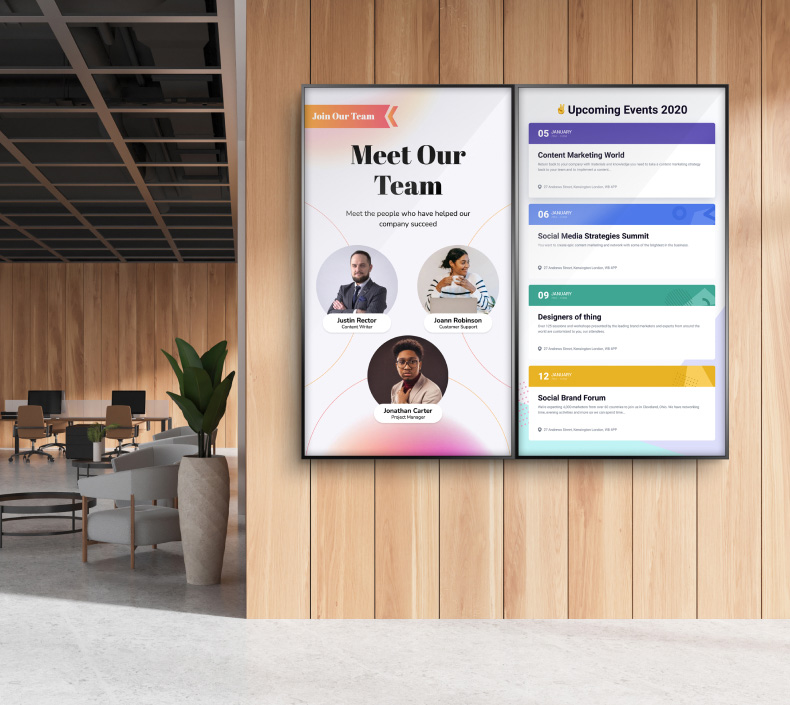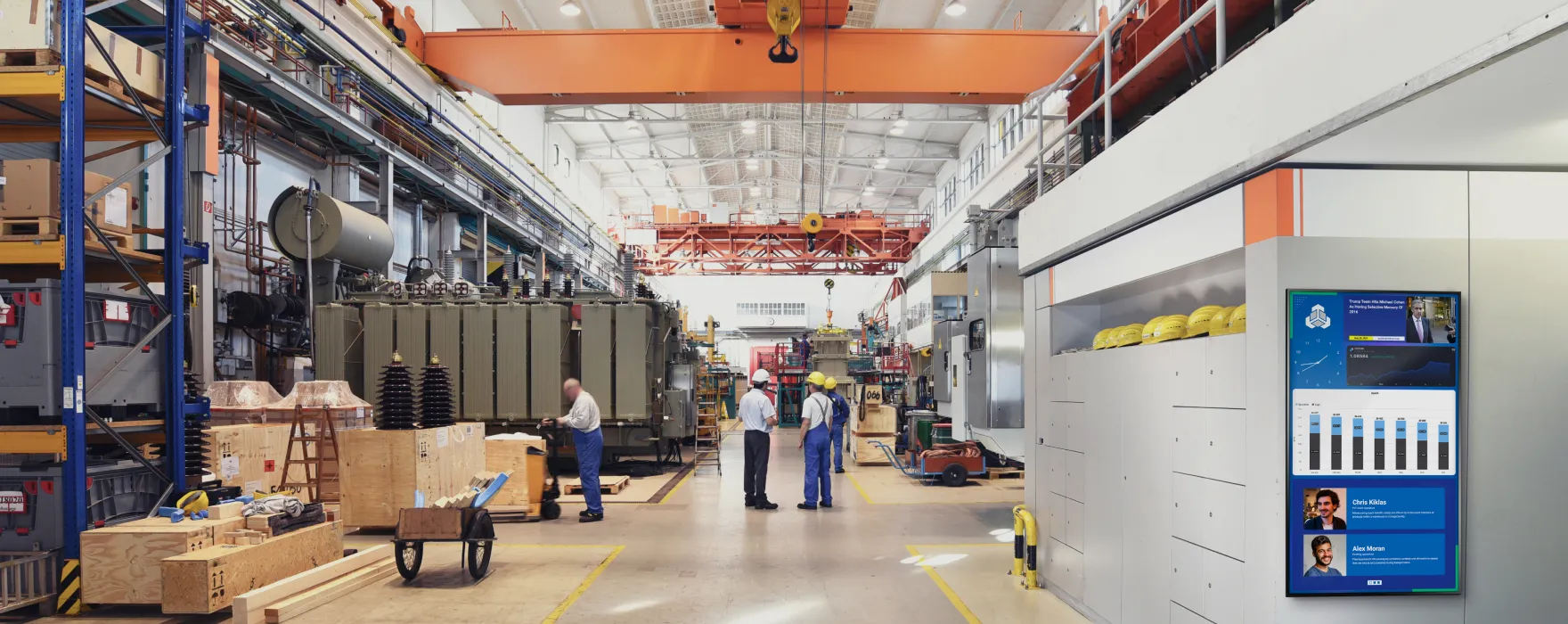How to Market Your Restaurant Promotions
The restaurant industry is a very lucrative and competitive one. If you're a newbie in this industry, it will take time and considerable effort to build a positive reputation. One of the biggest assets for anyone in the food and beverage business is marketing. Therefore, an effective marketing strategy is one of the ways of setting the pace for a rewarding business. One of the things you'll need to market vigorously is your restaurant promotions. Here are some tips on how to market your restaurant promotions.
1. Solidify Your Brand
Brand awareness is essential for any business. It's what draws potential customers to your organization. Therefore, you should take time to revisit your brand’s mission statement, positioning statement, and value propositions.
First, a mission statement should outline the reason you're in business. The statement should describe your business’s value, be realistic, and get to the point. Additionally, it should inspire your staff, stakeholders, and customers. On the other hand, the vision statement tells the public what you intend to do in the future. Here is where you state your goals and how they'll affect your customers and the restaurant industry.
Positioning statements describe how you want to be perceived by your customers, competitors, and the general public. Lastly, the value proposition describes how different you're from other similar businesses. You use this statement to show how you stand out from other restaurants.
2. Improve Your Menu Engineering

A restaurant’s menu, either static or digital, is one of the first things any customer or visitor will notice. Having a profitable menu is critical for the success of your business. You should create a menu that balances popularity and profitability. Furthermore, it's important to base your menu on real-time data.
For example, you may feature popular menu items in your restaurant promotional offer. This increases customer loyalty because your food cost decisions provide a positive dining experience. There are two data points to consider in your menu engineering choices: demand and contribution. Menu engineering should determine how items on your menu affect sales. In addition, it should analyze the product mix to find a way to improve profits. For best results, you should determine how each menu item’s sales record and contribution margins.
3. Maximize the Benefits of Email Marketing

Email marketing should be a part of your restaurant marketing ideas. In fact, you should find ways to grow your email list to improve your email marketing efforts. One way to grow your email list is by asking customers to fill in their details in forms. Most importantly, these forms can be delivered in-person or online.
Email marketing is one of the restaurant marketing strategies that will keep your customers coming back. With this tool, you can inform clients of new additions to your menu and other great offers. However, to avoid gross mistakes in your email marketing campaign, consult an expert to help you implement the best system for your restaurant promotions.
4. Exploit Social Media Publicity
Social media marketing is one medium that will help you generate huge traffic to your restaurant. Today, many social media platforms are full of posts featuring pictures of delicacies. If you want to keep orders coming in, you should exploit social media platforms for advertising your brand online. Furthermore, your followers can make online reservations through your social media pages.
There are many social media platforms online. What's more, you should target the most relevant ones to your business. In fact, Instagram is considered the King in the food industry, while Facebook is the Queen. Therefore, start by creating an Instagram account and start posting food pictures and video clips. A Facebook account will come in handy when creating a fan page.
On this Facebook page, post your offers, any discounts you're offering, and even photos of your restaurant menu item. Additionally, provide details of your contact information when creating your business profile. If you're unsure about how to start your marketing campaign, hire a social media expert.
5. Learn to Use Hashtags
Hashtags are an indispensable tool when embarking on online marketing. What's more, they help build brand awareness, promote engagement, and increase traffic to your business. Moreover, you want customers to associate your restaurant name with a particular positive impression. Your hashtags should center on certain keywords. Consequently, the use of hashtags builds your online reputation.
If you're constantly using hashtags to create brand awareness, your followers will also use hashtags. Subsequently, you'll achieve a high level of customer engagement. When your hashtag becomes popular, you increase your customer base, and your online followers start flocking to your business.
6. Take Advantage of User Generated Content

User-generated content is a great way to make your marketing efforts less cumbersome. Since you have limited time, using content posted by your followers can save you both time and money. According to recent studies, 92% of people prefer recommendations from other people to branded content. Besides, many people don't trust salesy content and will rely on the reviews of their peers. Therefore, use the content that people post in favor of your brand. User-generated content acts the same way as review sites. On review sites, people provide their opinion about a certain brand.
To begin with, user-generated content is that it’s free. Restaurants have a lot of user-generated content because customers love to post photos of their food. User-generated content is an indicator of a reliable brand. Moreover, they serve the same purpose as online reviews. Thus, using content from your customers enables you to connect with potential clients and to come across as genuine.
7. Conduct a SWOT Analysis on Your Competitors
Make a list of five local competitors and conduct a SWOT analysis for each. In fact, you can shortlist your competitors based on zip code. For instance, you can choose all the restaurants operating around your location.
In the first place, the strengths of these brands will help you note what your competitors are doing right. This helps you perfect what's working for them. Similarly, you should note down the weaknesses of your competitors. This will enable you to learn from their mistakes.
Moreover, you should review opportunities and threats. Determine how you can exploit the weaknesses of your competitors by doing better. Also, note the unique features of your competitors and find ways to counter these threats.
A part of analyzing your competitors involves looking into their strategies. Most importantly, visit their website and check out their current restaurant promotions. These include their deals, daily recurring specials, freebies, and log coupons. In addition, note special events such as karaoke, music, and games night. Visit your competitors’ Instagram, Facebook, and Twitter accounts. Prying through their social media platforms will help you determine their strategies for advertising and increasing customers. Also, take note of the follower numbers and their content.
8. Use Yelp
Yelp is popular in the restaurant industry. For that reason, attaining positive Yelp reviews will work wonders for your business. Read online blog posts about increasing positive Yelp reviews.
Remember that people will review your brand even when you don't have a Yelp account. Therefore, you should be proactive and set up your Yelp account, so it works in your favor. Firstly, include many details about your brand in your Yelp profile. Upload photos of your delicacies, menus, and restaurant. Also, talk about your location, store hours, prices, and unique features.
When it comes to Yelp, you need to prepare yourself to handle feedback. You need to respond to both positive and negative reviews. Most importantly, if you receive a bad review, respond with a degree of professionalism. A rule of thumb is to always play the role of a gracious host. You never know; you could change the perspective of your reviewers just by your response and attitude.
Restaurant Promotions Conclusion
Running a restaurant is no walk in the park. It takes hard work and commitment to be a winner in this industry. Consequently, the success of your business depends on your restaurant marketing plan. Bear in mind the restaurant business is a contest between many players. You want to appear in the top ten search results on Google. Aim at becoming a fine dining restaurant. Therefore, your success in this industry is based on how well you market your brand through effective restaurant promotion.







